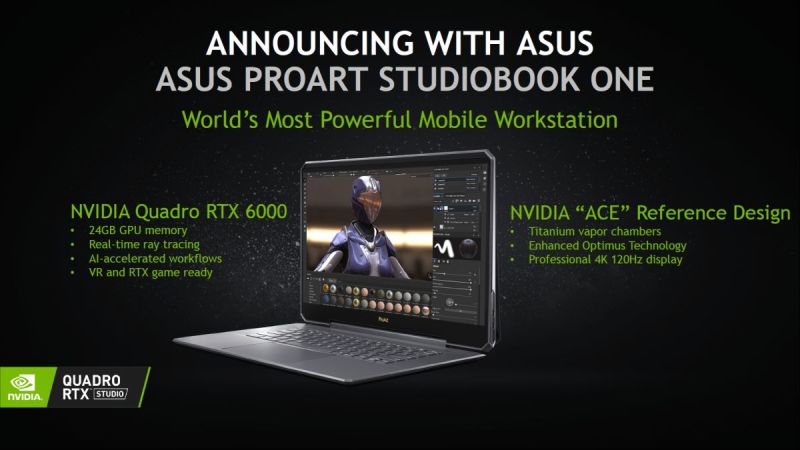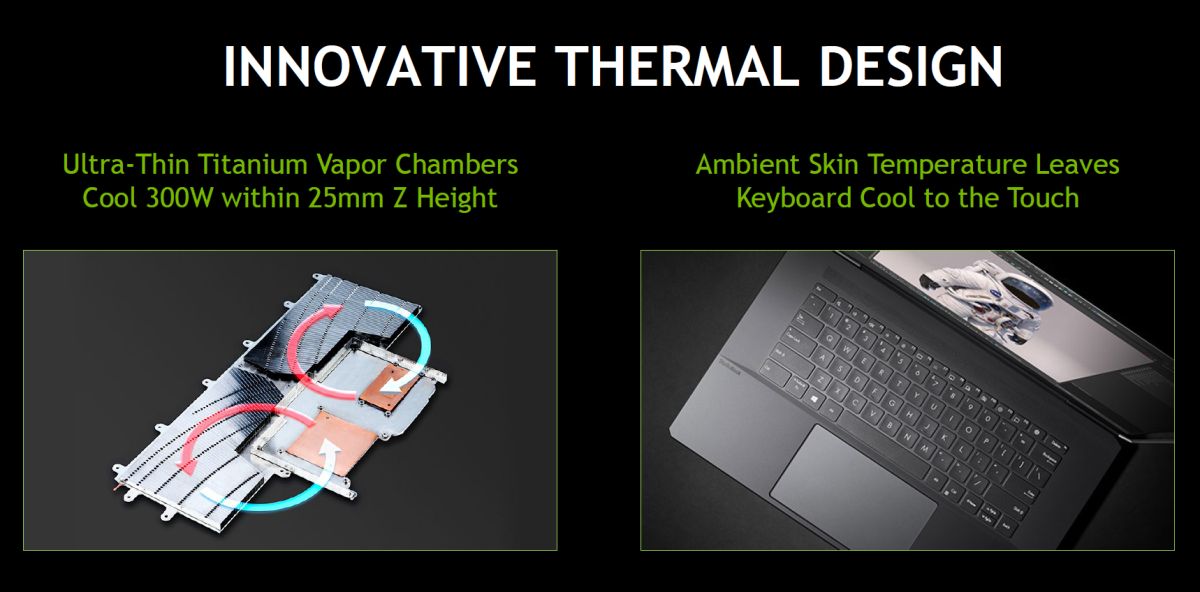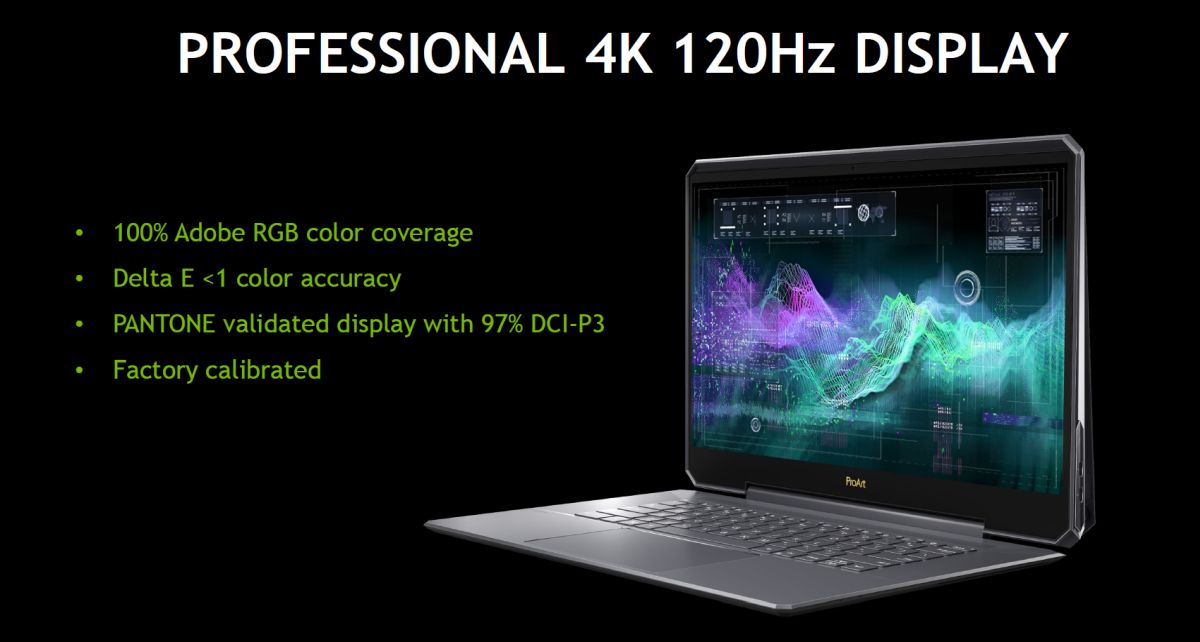Specs-wise, it’s clear that ASUS spared no expense in making the ProArt StudioBook One. The notebook runs on an Intel Core i9 CPU and 64GB DDR4 RAM. The jewel of the notebook, however, is the Turing-powered NVIDIA Quadro RTX 6000 dedicated GPU fitted inside it. By default, the GPU has 24GB of GDDR6 graphics memory that in turn are capable of executing real-time ray-tracing and AI-accelerated workflows. To keep both the GPU and CPU running as efficiently as possible, ASUS designed an ultra-thin titanium vapour chambers. Designed to run at 300W, while thin retaining a thickness of 25mm in its Z-height. In theory, this means that the base of the notebook is cool to the touch.
On a side note, NVIDIA has provided the ProArt StudioBook One and the Quadro RTX 6000 with an enhanced Optimus technology that auto-switches between machine’s integrated and discrete GPU. Based on the applications and thereby negating the need to restart applications or reboot the system. To complement the internals, the ProArt StudioBook One is also equipped with 15.6-inch 4K display with a 120Hz refresh rate. Seeing how the notebook is aimed at creators and professionals working in visual effects departments, the screen is also Pantone validated with a 97% DCI-P3, 100% Adobe RGB colour coverage, and Delta E <1 colour accuracy.
At the time of writing, neither ASUS nor NVIDIA has provided local availability and pricing of the ProArt StudioBook One.


